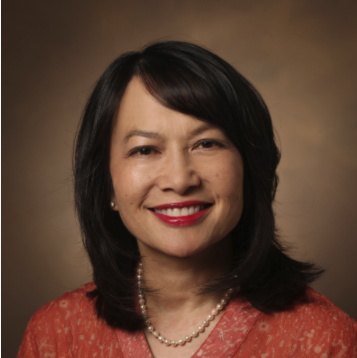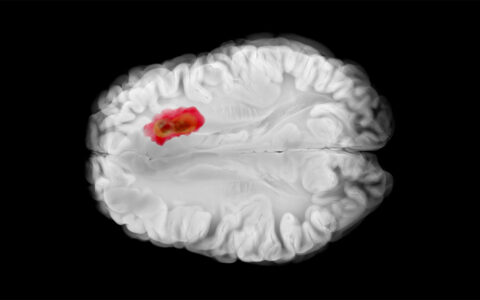A new diagnosis of colorectal cancer (CRC) affects nearly 18,000 adults under 50 each year, a figure that has been rising steadily by 2.2 percent a year.
Adults born around 1990 have double the risk of colon cancer and quadruple the risk of rectal cancer compared with those born around 1950.
“Early onset” applies to colorectal patients under 45 years old, but rates are up significantly even in the 30- to 39-year-old age band. The trend is occurring amid a persistent public perception that CRC is a disease of old age.
Cathy Eng, M.D., the David H. Johnson Chair in Surgical and Medical Oncology and director of the Young Adult Cancers Program at Vanderbilt-Ingram Cancer Center, works relentlessly to dispel this perception, which she says is still prevalent among many clinicians.
“While recent revisions in CRC screening guidelines down from 50 years old to 45 is celebrated, its impact is diminished by this rising incidence,” she said.
A recent literature review with Eng as first author was published in Lancet Oncology, laying out the case for greater attention to this issue. The article is one of three in a series she has authored on the epidemiology, molecular landscape and treatments for early onset CRC. Eng also calls for clinicians to consider psychosocial and support needs, and weigh treatment options based on younger patients’ stage of life.
Age-related Differentiators
Eng says that while there is a degree of overlap in early and late onset patient characteristics, important dissimilarities point to etiological differences.
“Most of the time, the patient will look healthy, so if they have bleeding it may be dismissed as hemorrhoids.”
Chief among these is the preponderance of tumors in the distal colon in younger compared to older patients.
Patients under 50 are also more likely to have sporadic disease potentially associated with an energy imbalance stemming from physical inactivity, sedentary behavior and excessive calorie intake.
Sporadic CRCs in those age 45 and younger are much more likely to have synchronous metastases, absence of methylation, and evidence of chromosomal instability compared to those occurring in individuals over 60. However, Eng says genetic heterogeneity is also in play with some of these cancers, so she recommends evaluation through next-generation sequencing.
Potential Underlying Causes
Eng notes that while the etiology is not thoroughly understood, more associations are emerging with childhood obesity and dramatic weight gain in early adulthood. Incidence rates generally track with states where obesity is most prevalent.
“We see potential underlying causes of early onset CRC as related to energy balance, biological and genomic mechanisms, including microbiome aspects,” she said. The study authors note, “It will be crucial to discover the mechanisms underlying adipose–tumor tissue crosstalk, specifically in patients with early onset colorectal cancer.”
Antibiotic use is also high on the list of potential causative factors due to its disruption of healthy intestinal flora in the gut microbiome. Resulting inflammatory processes, with high levels of cytokine release, are suspected to be complicit in some cases.
“Avoiding sexual dysfunction, infertility, and urinary and bowel problems may play a greater role in guiding treatment.”
Beware of Common Assumptions
Eng says the real goal of the manuscript is twofold: first, to bring increased education and awareness to these young cancer patients, and second, to encourage providers to be vigilant about probing symptoms, particularly changes in bowel habits, pain during bowel movements and persistent anemia.
“Most of the time, the patient will look healthy, so if they have bleeding it may be dismissed as hemorrhoids,” Eng said. “As a result of not listening to their bodies or pressing the issue with clinicians, the majority of patients I see usually have more advanced, surgically unresectable disease. If they survive, they will be on chemotherapy indefinitely.”
She recommends, at minimum, a flexible sigmoidoscopy up to the splenic flexure for people aged 40 to 50 who are symptomatic. “The ideal test is a colonoscopy because it will evaluate the entire colon, but any screening is better than no screening, whether it’s a Cologuard test or a flexible sigmoidoscopy.”
She also encourages consideration of patients’ personal life-stage challenges as they treat their cancer.
“They are faced with so much uncertainty relative to the average counterpart their same age,” she said. “Avoiding sexual dysfunction, infertility, and urinary and bowel problems may play a greater role in guiding treatment. Difficult discussions on these topics and job security, family planning and mental health need to take place, with resources on hand or by referral to help them cope with these unexpected diagnoses.”




